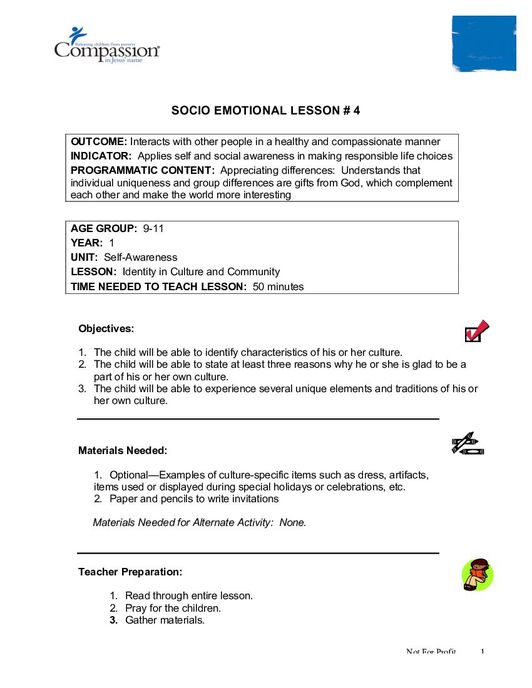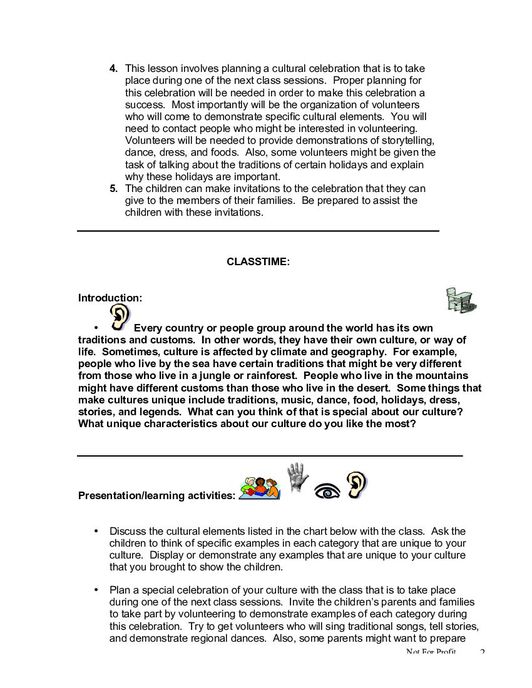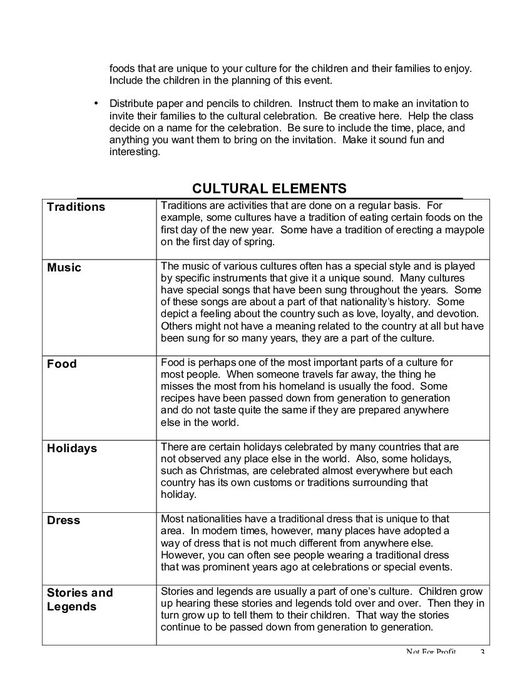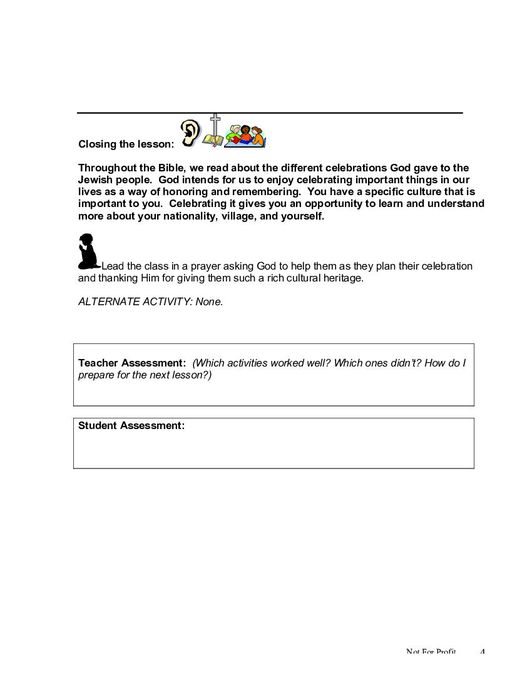Identity in Culture and Community
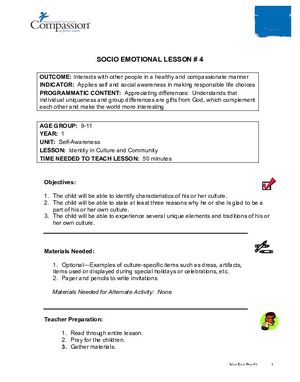
Preview
Login Required
You must be a member of the ForChildren.com community to download resources. Click the buttons below to sign in or sign up!
| Category | Socio-Emotional Development |
| Copyright Owner and Year | Compassion International , 2015 |
The lesson “Identity in Culture and Community” teaches children about their own culture and why it is important to appreciate the culture and community in which they live. The children will be able to identify characteristics of their culture and state at least three reasons why they are glad to be a part of that culture. With teacher facilitation, each child will be able to experience several unique elements and traditions of his or her own culture. The lesson includes guided instructions for the teacher, including preparation, a script, and suggested activities to facilitate further learning in a fun and interactive manner. This lesson is designed for children between 9-11 years, and is the fourth lesson in the 1st year “Self-Awareness” unit.
Related Documents
-
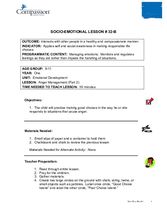
Anger Management (Part 2)
The lesson “Anger Management (Part 1)” teaches children about the application of self and social awareness in terms of monitoring and man… -
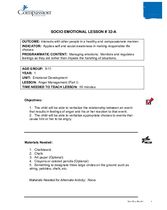
Anger Management (Part 1)
The lesson “Anger Management (Part 1)” teaches children about the application of self and social awareness in terms of monitoring and man… -
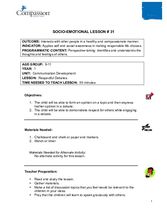
Respectful Debates
The lesson “Respectful Debates” teaches children the value of appreciating the different opinions of others, while positively expressing … -
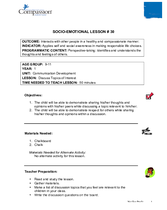
Discuss Topics of Interest
The lesson “Discuss Topics of Interest” teaches children more about interacting with others and communicating perspective and opinion, wh… -
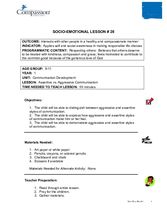
Assertive vs. Aggressive Communication
The lesson “Assertive vs. Aggressive Communication” teaches children more about the importance of strong interpersonal skills in building… -
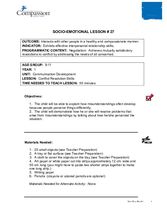
Conflict Resolution Skills
The lesson “Conflict Resolution Skills” teaches children to demonstrate appropriate and positive strategies in conflict situations, inclu… -
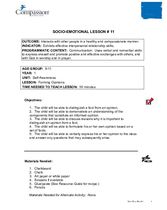
Forming Opinions
The lesson “Forming Opinions” teaches children the importance of interpersonal relationship skills and communication in order to have pos… -
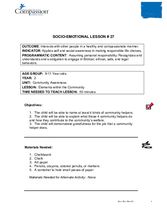
Elements within the Community
The lesson “Elements within the Community” teaches children about self and social awareness and personal responsibility as it relates to community. T… -
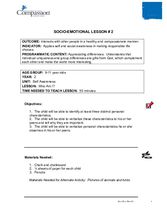
Who Am I?
The lesson “Who Am I?” teaches children about appreciating differences. Children learn about the importance of God-given gifts, naming at least three… -
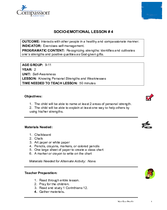
Knowing Personal Strengths and Weaknesses
The lesson “Knowing Personal Strengths and Weaknesses” teaches children about to further recognize and cultivate God-given strengths and talents in s…

